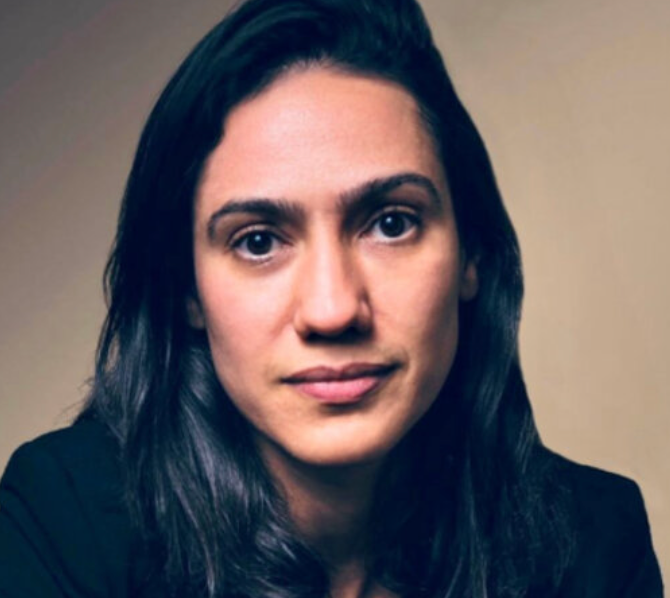News
Article
Brazil Has Distorted Prices for Biological Medicines Compared to Other Countries
Author(s):
Unlike several European countries, Brazil does not have recurring price reductions, which could contribute to the distorted prices for biological medicines.
Marcela Amaral Pontes
Credit: ResearchGate

Brazil’s pricing model has created distortions in the prices of biological medicine in the market—making the drugs more expensive than other countries, preventing Brazilians from accessing these drugs, according to a new study.1
“The current methodology used in Brazil for pricing originator biologicals and biosimilars is based on [external reference price] or [internal reference product], by calculating the cost of treatment with therapeutically comparable drugs,” investigators wrote, led by Marcela Amaral Pontes, from the pharmacy department at the University of Brasilia in Brasilia, Brazil. “These rules, according to data presented, have generated significant distortions in prices and do not help in the development of a market with perfect competition.”
Biological medicines can be expensive—in 2017 it was reported a medication for hepatitis C had cost 364,000 BRL, equivalent to $87,500, in Brazil.2 Unlike other in countries, originator medications in Brazil do not have price reductions.1
Although biosimilars exist to lower health care costs, in Brazil they do not have a price reduction, either. The disperse of biological medicines is lower than synthetic medications due to the high cost, biologics only treating a few diseases, and no health system overseeing treatments with the medication.
Pontes and colleagues’ study aimed to see how the economic regulation model impacted the accessibility of biosimilars in Brazil. They compared prices of biological medicines and economic regulation policies in Brazil with the countries US, Australia, New Zealand, Canada, Greece, France, Spain, Italy, and Portugal, hoping to look for trends to help make biological medicines more accessible.
Investigators assessed 2019 data on the 7 biological medicines from 20 substances with the greatest cost in Brazil. They collected 2003 – 2022 data on the other countries' Ex-Factory Prices of biological medicines, without taxes. The team analyzed the data between August 2021 – January 2023.
Investigators found Brazil had the highest prices of biological medicines compared to the other countries with a large price variation for originator biological medicines that have available biosimilars in the market. For instance, remicade FP in Brazil in 2022 was 1,054% higher than in France.
However, they found the difference in prices of medicines with a valid patent was a lot smaller. In Brazil, the FP of Perjeta in Brazil was 159% higher than in Italy.
Additionally, they found most countries strived to match the prices of various brands of the same molecule in the country and with the international market. Other countries also had policies in place for biosimilar regulation, indicating what biosimilars should be on the market, replaced, or need a percentage discount on the price of the reference product or originator medicine.
Greece revises prices of biological medicines annually based on the mean of the 2 lowest prices in the European Union and cannot be lowered to more than 7% of the current price. France revises prices of originator biologics or biosimilars after 3 or 5 years due to the arrival of new biosimilars or the therapeutic progress of the medicine.
In contrast, New Zealand’s pricing model prevents them from revising prices occasionally. Likewise, Brazil and the United States do not have policies in place for price revision.
For biologicals in Brazil with a valid patent, nivolumab had its price adjusted after 5 years by 30%, pertuzumab had its price adjusted and increased after 8 years by 35%, and pembrolizumab after 4 years had a price increase of 28%. The price increase of pembrolizumab in Brazil is greater than in the US.
Despite striving to make sure medication costs do not exceed the price in other countries, the investigators suggest this method is an “inefficient approach to reducing prices” when used alone. However, other factors could distort the prices.
“The high tax burden, the US dollar exchange variation, inflation, and the lack of periodic monitoring and revision of prices make the availability of products in the market and access to medicines in Brazil increasingly difficult,” investigators wrote.
European countries and Australia have the largest discounts on biological medicine prices with valid patents. Greece had the greatest reduction in prices; nivolumab, after 5 years on the market, reduced in price by 17%, pertuzumab after 7 years reduced by 22%, and pembrolizumab after 6 years reduced by 72%.
Australia, Spain, France, and Portugal used the price link methodology. Moreover, Greece and France applied a reduction rate in the originator biological price to match the prices of different brands of the same molecule. Brazil uses a price link methodology only to determine the prices of generic drugs.
Limitations highlighted by the investigators included the small sample of biologicals making it hard to determine if the price reductions are accurate because some of the prices might be confidential.
“With the evidence presented here, the need for a broader political and regulatory debate on the biologics and biosimilars market in the country is reinforced, to guarantee the access of the Brazilian population to more cost-effective technologies, generate a more competitive market and consequently contribute [to] the financial sustainability of health systems,” investigators concluded.
References
- Pontes MA, Ribeiro AA, Albuquerque FC, Leite Cotenzini SN. Comparative price analysis of biological medicines: disparities generated by different pricing policies. Front Pharmacol. 2024;14:1256542. Published 2024 Jan 11. doi:10.3389/fphar.2023.1256542
- Junqueira, D. Why Brazil Pays up To 1,400 BRL for a Medicine That Costs 34 BRL. Repórter Brasil. June 20, 2017. https://reporterbrasil.org.br/2020/06/why-brazil-pays-up-to-1400-brl-for-a-medicine-that-costs-34-brl/. Accessed February 16, 2024.





